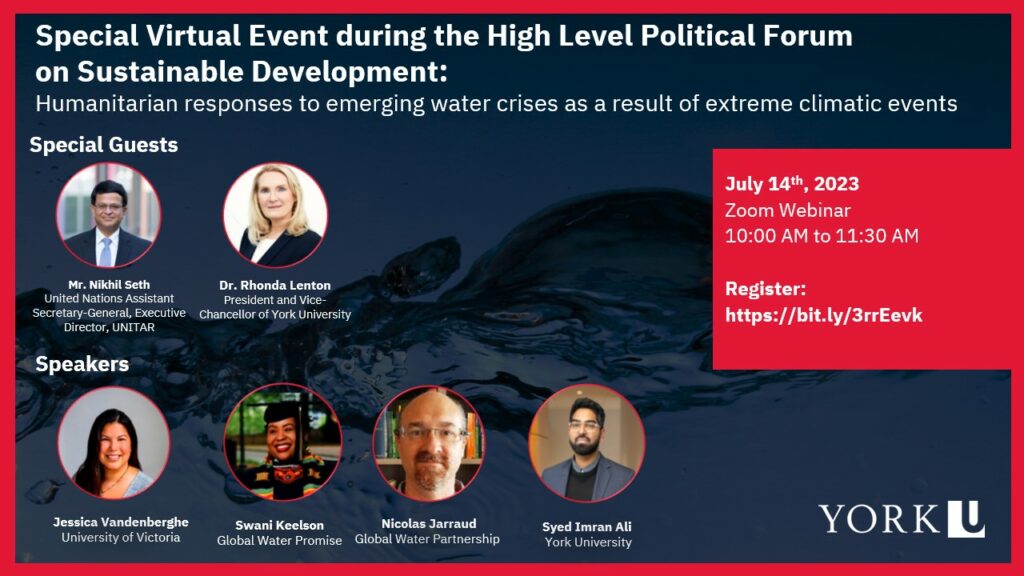Humanitarian Responses to Emerging Water Crises as a Result of Extreme Climatic Events

Join us on Friday, July 14, 2023 at 10 a.m. ET for a special event hosted by York University during the High-Level Political Forum on Sustainable Development with a panel entitled, “Humanitarian responses to emerging water crises as a result of extreme climatic events.”
Extreme climatic events, including heatwaves, droughts, and storms, are increasing in frequency and intensity over the past few decades, with consequences for freshwater. Extreme climatic events have been associated with changes in freshwater availability and degradation of water quality, including elevated concentrations of nutrients, contaminants of emerging concern, and potential for algal blooms, some of which may be toxic. As humans and wildlife rely on freshwater for life, alterations in the freshwater supply in response to extreme climatic events can have catastrophic impacts, particularly during humanitarian crises.
Bringing together four renowned experts who work at the heart of humanitarian solutions through technology, engineering, global governance, and advocacy, this virtual panel aims to explore the humanitarian responses, challenges, and solutions to alleviating the freshwater crisis, particularly in the face of global environmental degradation and extreme climatic events.
Register below and join us on Friday, July 14, at 10 a.m. ET
This event is cosponsored by the Dahdaleh Institute for Global Health Research; One WATER Research Centre; Office of the Vice-President Research & Innovation, York University; United Nations Development Programme; and United Nations Institute for Training and Research.
Please email sharma11@yorku.ca with any questions about this event.
***Thank you for attending our webinar. Please stay tuned for the launch of the UN Global Water Academy website in the coming months with more panels, training modules, and workshops to come. Watch the recording (1:30:46)***


